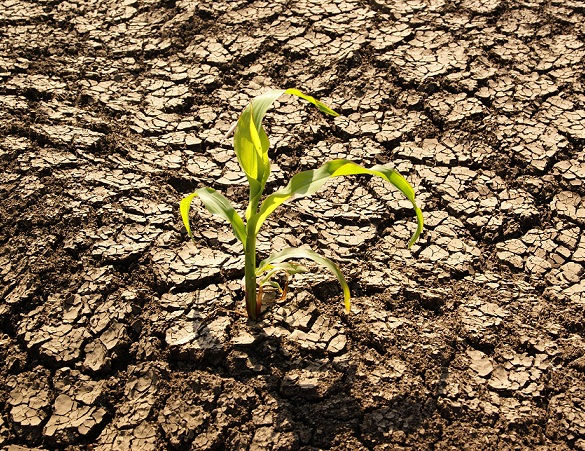Mexican growers seek sustainable solutions to water challenge

Mexican growers are embracing irrigation by drip and the use of microrganisms to improve water retention in soil as means of managing the “huge impact” of the climate crisis on fresh fruit and vegetable production in the country.
With regions such as Sonora’s Yakui Valley having received little or no rainfall for the past two years, growers are seeking innovative methods to maintain productive levels under challenging circumstances.
Sustainability emerged as a key theme during the inaugural Mexico Conference for the recently-formed International Fresh Produce Association (IFPA), which took place from June 22-23 in Guadalajara, Mexico.
According to Adrian Ortega from leading vegetable and salad grower Mr Lucky, the Irapuato-based company has adopted irrigation by drip in recent years as a means of better using its limited water resources.
“There are factors we can change and others we can’t influence,” he said. “Climate change is affecting us hugely. For example, water reserves are running low.
“We have to become much more conscious as an industry or what we are using and how we are using it. As a country, we are all experiencing decreases in volumes, so we have to find ways of utilizing whole products rather than throwing some of it away.”
As well as using drip irrigation, Ortega said Mr Lucky had put in place systems for rainwater recovery and was currently exploring other options for making the best use of water.
Drought impact
Mexico’s north is one of the most impacted areas by climate change, with Yakui Valley in Sonora state having received almost no rainfall for the last two years.
Eduardo Parada, from Yaqui Valley-based fig and pecan grower Agricola Cluj, has made finding sustainable solutions to the water challenge a priority, and he believes it has found one of the most viable in the form of microorganisms.
Although often viewed as a pest, Parada argued that such creatures are vital to helping achieve water retention in soil and promoting healthy plant growth.
“When you bring together all the microorganisms that exist in soil and let them do their job naturally, you avoid having hard surfaces that aren’t fertile,” he said.
Faced with the rainfall challenge and reservoirs that were close to empty, Parada said Agricola Cluj believes the only solution available is to adapt to the circumstances in the best way possible.
“A lot of the time, soil can’t retain water due to the type of irrigation being used by the grower,” he continued.
“In our case, we use irrigation by drip, but even doing this, the soil doesn’t retain all of the water. Every time you make the soil healthier using microorganisms, you are helping it to retain a greater volume of water.
"Doing this means the soil achieves greater absorption and at the same time retains the water for a longer period of time.”
Agricola Cluj began fig production in 2019 partly, Parada explained, because the company was seeking options that did not require as much water.
Since starting in January 2022 with the microorganism program, Parada said Agricola Clej had used 30% less water for its fig production compared with the first six months of 2021.
Human capital
However, the emphasis was not only on the environment. Adrian Ortega from leading vegetable and salad grower Mr Lucky said the company was acutely aware of the need to support its staff as Mexico emerges from the Covid-19 pandemic.
“As a company, we want to keep growing, but achieving that is dependent on the wellbeing of our human capital,” he said.
“The pandemic has shown how vulnerable we are in this area, so a lot of what we have been doing has been focused on the development of our employees and their workplace conditions. This will help us maintain our rhythm of growth.”
Although Ortega said Mr Lucky continued to benefit from the growth of the read-to-eat market in Mexico, the company has been affected by the rising cost of agricultural materials in Mexico.
“The challenge is to maintain the variety and quality of out products, but at the same time make sure the impact from these costs is as little as possible,” he concluded.
















































